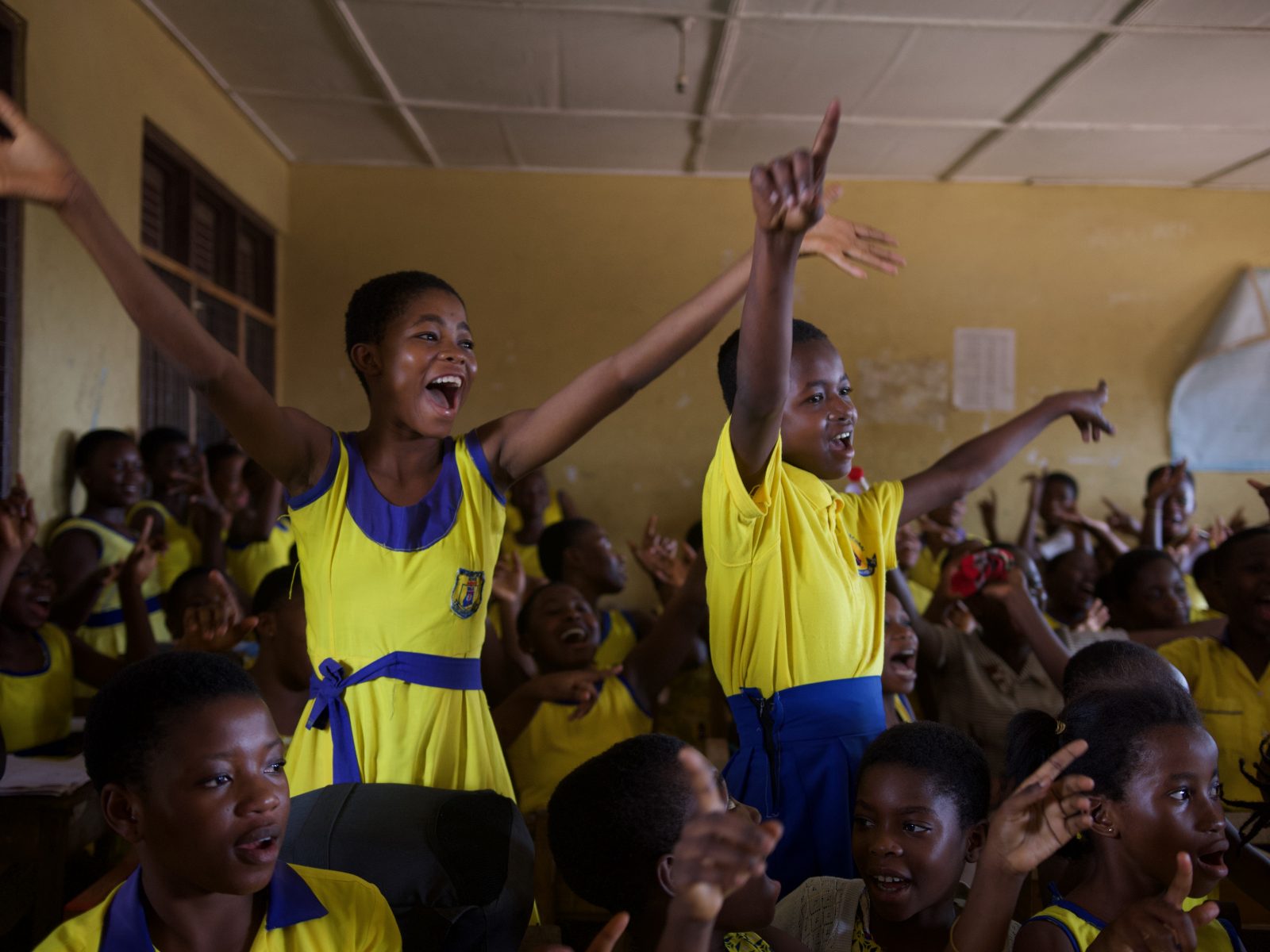The Ignite Programme engages over 250 volunteers (‘Catalysts’) within Spot communities to advance skills, knowledge, and sustainable community capacity.
The programme was launched in May 2023 through five regional Academies, followed by ongoing support via zoom trainings, WhatsApp communities, mentorship and Spot visits. By bridging gaps in educational provision and resources, the programme serves as a transformative tool for empowering Catalysts and addressing these inequalities. Reflecting on their experiences in the programme, Catalysts point out a myriad of tangible changes enacted in their communities.


In terms of educational impact, Catalysts have observed students’ increased school attendance as well as their improved reading skills and exam results. Students’ abilities to think creatively and critically to solve problems has also been significantly enhanced. These outcomes are especially attributed to heightened community awareness of local libraries that provide students with safe environments conducive to studying. Mentorship programmes have also played a key role in improving academic performance.



Catalysts lauded the introduction of the Ignite Girls strand, was launched in response to Catalysts’ identification of challenges faced by female students. They indicated the link between the programme and increased attendance change in both girls and boys, as well as a positive attitudinal change towards stigmas relating to menstruation, with girls learning about the importance of menstrual hygiene and how to make their own reusable pads as part of the programme.
More widely, the programme enabled girls in 23 communities were guided in establishing goals and working towards achieving them. One volunteer commended the pivotal role EduSpots had in transforming girls’ confidence, asserting, “these girls were vulnerable but became people who could stand up for themselves.” Many also spoke of girls’ increased motivation to learn and their newfound leadership skills.


One Catalyst paired boys with mentors from the community who shared similar backgrounds or career interests. They noted, “The significance of this change lies in its potential to break the cycle of generational poverty and inequality by empowering boys to pursue higher education and meaningful careers. Additionally, the mentorship program can strengthen the community by fostering connections between boys and local professionals, creating a sense of shared responsibility for the success of the next generation. Ultimately, this educational catalyst can contribute to the overall improvement of the community’s economic and social well-being.”
As a result of the Catalysts’ desire to include boys in addressing gender-based challenges, this strand has been renamed ‘Ignite Equity’ for 2024, with a focus on involving and empowering students of both genders.


Catalysts identified many components of the Ignite programme as particularly helpful in achieving these positive outcomes. Monthly challenges promoted critical thinking, collaboration, and innovation skills. Regional Academies fostered volunteering spirit, motivation, and important learning opportunities that enabled like-minded people to learn from one another.
Resources and grant support made it possible for Catalysts to renovate the Spots to make them more comfortable and supportive for learning. Moreover, peer mentors empowered their peers, promoting personal growth and an enhanced sense of community. Many also applauded staff support and the wider community support which facilitated collaboration and the sustainability of the initiatives enacted.


In these many ways and more, the Ignite Programme has sparked a remarkable transformation in communities’ perceptions of education. As learners commit to engaging in educational activities, they recognize the profound impact this has not only on their individual lives but on the wider community too.
As one volunteer aptly summarizes, the programme is responsible for “bringing back the love for education”, enabling children “to realize their potential.”
This article was written by Communications Intern, Emilia Privat, using Catalysts’ mid programme reflections through the Most Significant Change research methodology through ImpactEd’s evaluative platform.
An independent ImpactEd study on aspects of the Ignite Programme using validated measures, demonstrated that across the 9 month period students in the EduLit clubs increased their ‘interest in reading’ by 8.2% and students in the EcoSTEM club increased their ‘school engagement’ by 5.4%. As a result of the Ignite Academies, Catalysts engaged in the programme increased on the ‘teamwork’ scale by 7.6% on average and active listening by 9.8%, with over 100 volunteers surveyed.
Following Ignite Programme, in 2023, we saw a 113.3% increase in challenge submissions, an 117.4% increase in Spot learners, with a 23% increase in volunteers.
If you are interested in funding EduSpots’ Ignite Programme relaunch for the 2024-2026 cycle, email our Founder, Cat Davison, at cdavison@eduspots.org. You can also find more information on all our programmes here.



2 thoughts on
Leave a Reply
You must be logged in to post a comment.


Very interesting and reflective.
Well done
Waaaaaaaaaaaaaaaw!!! What a comprehensive article. Well done!